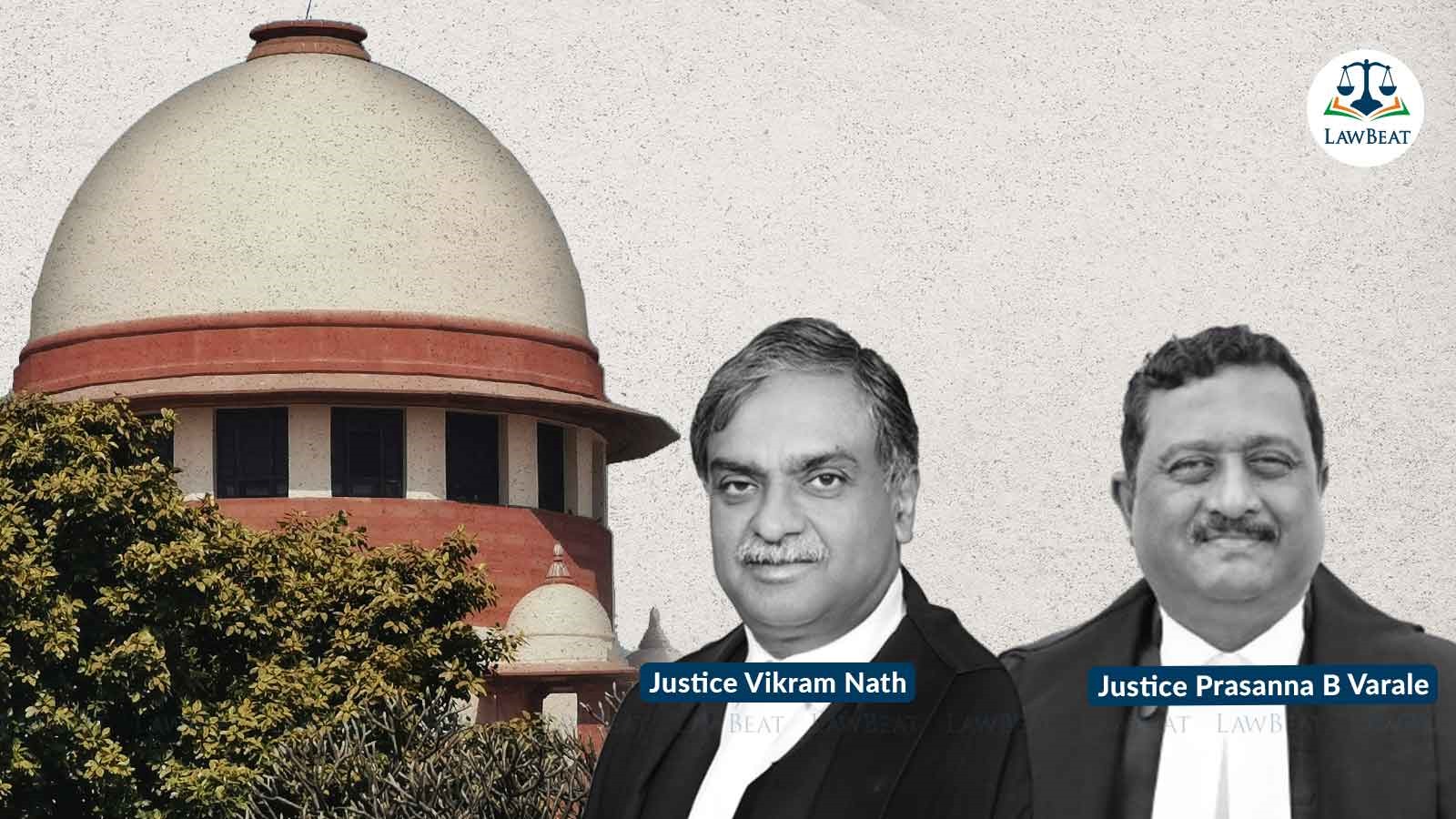Employee Must Be Reinstated if Termination Order is Set Aside: SC

Court stated that when a termination order is overturned, the employee is considered to be in service
The Supreme Court recently observed that if a termination order is set aside and the high court's judgment dismissing the related writ petition is also set aside, the employee must be reinstated and dealt with according to the specified directions.
A bench of Justices Vikram Nath and Prasanna Bhalachandra Varale said that once the termination order is set aside then the employee is deemed to be in service.
Acting on a miscellaneous application by Anantdeep Singh, the bench said, "We find no justification in the inaction of the High Court and also the State (of Punjab) in not taking back the appellant into service after the order (by this court) on April 20, 2022."
The appellant in the Supreme Court case was a judicial officer with the Punjab Civil Services (Judicial Branch) since 2006. On December 7, 2009, the high court's full bench terminated his services, along with those of a female judicial officer, over allegations of an "illicit relationship." A complaint was also filed by his wife and mother-in-law, accusing him of not staying in official accommodation and misusing an official vehicle.
The appellant and the lady judicial officer filed separate writ petitions before the high court, which on October 25, 2018 dismissed the plea by him but set aside the termination of the woman officer the next day on October 26, 2018, disbelieving the allegations of an illicit relationship.
The high court challenged the order concerning the lady judicial officer, which was dismissed by the Supreme Court on July 1, 2019. The lady judicial officer, thereafter, was reinstated and has been working.
On the appellant's plea, the top court set aside the judgment of the high court of October 25, 2018, and the termination order of December 17, 2009. It further asked the full court of the high court to reconsider the matter.
The full court in its meeting on September 16, 2022 referred the matter to the Recruitment and Promotion Committee (RPC), which seven months thereafter on April 12, 2023, reiterated its earlier decision of 2009.
Since the appellant was not taken back in service despite the termination order having been set aside, he filed an application before the Supreme Court which was disposed of by order on May 04, 2023, requesting the full court of the high court to decide the matter within three months. The full court of the high court on August 3, 2023, resolved to reiterate its earlier decision of 2009, terminating the services of the appellant.
He filed a writ petition before the top court which was on September 22, 2023, allowed to be withdrawn to explore legal options.
He then filed the instant application on October 30, 2023. Amid the pendency of the present plea, the Punjab government passed an order on April 02, 2024 terminating the services of the appellant with retrospective effect i.e. from December 17, 2009.
The appellant's counsel argued that it took nearly two years for the respondents to reach a fresh decision. During this time, the appellant was neither reinstated nor paid any salary, and no arrears were cleared since December 17, 2009, the date of the original termination order, despite it being set aside by the Supreme Court.
He said there had been no reconsideration of the matter, and the resolutions placed on record were also non-speaking.
He contended that once the complaint of the wife and mother-in-law of the appellant was not found to be credible and truthful with respect to the allegations of an illicit relationship, any reliance placed upon the said complaints with respect to minor allegations of using a private car, etc could not be relied upon.
His counsel also said that there could not have been any backdating of the termination order being made effective from a previous date. As such the order of April 02, 2024 deserved to be quashed.
The high court's counsel defended the termination order saying that there were allegations of misconduct or unsuitability against the appellant and therefore, he could not claim any advantage or benefit from the judgment in the case of the lady judicial officer.
The court, however, said that it was not entering into the merits of the matter i.e., the reconsideration by the high court in the full court meeting held on August 03, 2023, and the termination letter issued by the State on April 02, 2024. These orders could be tested before the high court by way of a fresh writ petition, it said.
Dealing with the application, the bench said that after the top court's order of April 20, 2022, no decision was taken either by the high court or by the State of taking back the appellant into service and no decision was made regarding the back wages from the date the termination order had been passed till the date of reinstatement which should be the date of the judgment of the top court.
"In any case, the appellant was entitled to salary from the date of judgment dated 20.04.2022 till fresh termination order was passed on 02.04.2024. The appellant would thus be entitled to full salary for the above period to be calculated with all benefits admissible treating the appellant to be in continuous service," the bench said.
The court also held that the appellant would be entitled to 50 % of back wages for the period between 2009 and 2022.
With regard to the resolution of the full court of the high court of August 03, 2023 and the termination order of April 02, 2024, the bench said that the appellant would be at liberty to challenge the same by way of a writ petition before the high court which may be decided on its own merits.
Case Title: Anantdeep Singh Vs The High Court of Punjab And Haryana at Chandigarh & Anr
